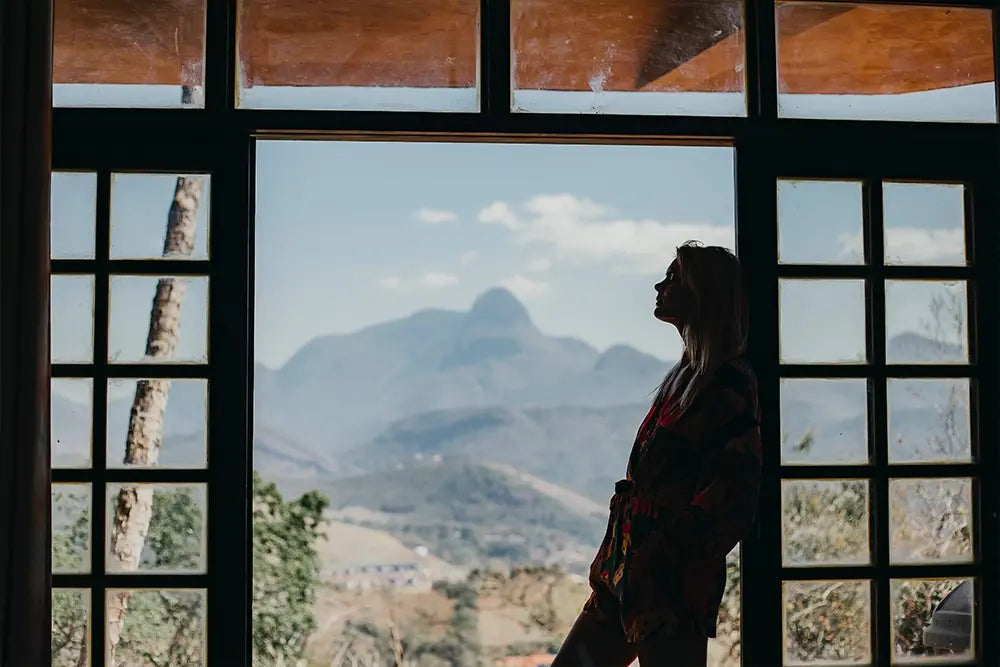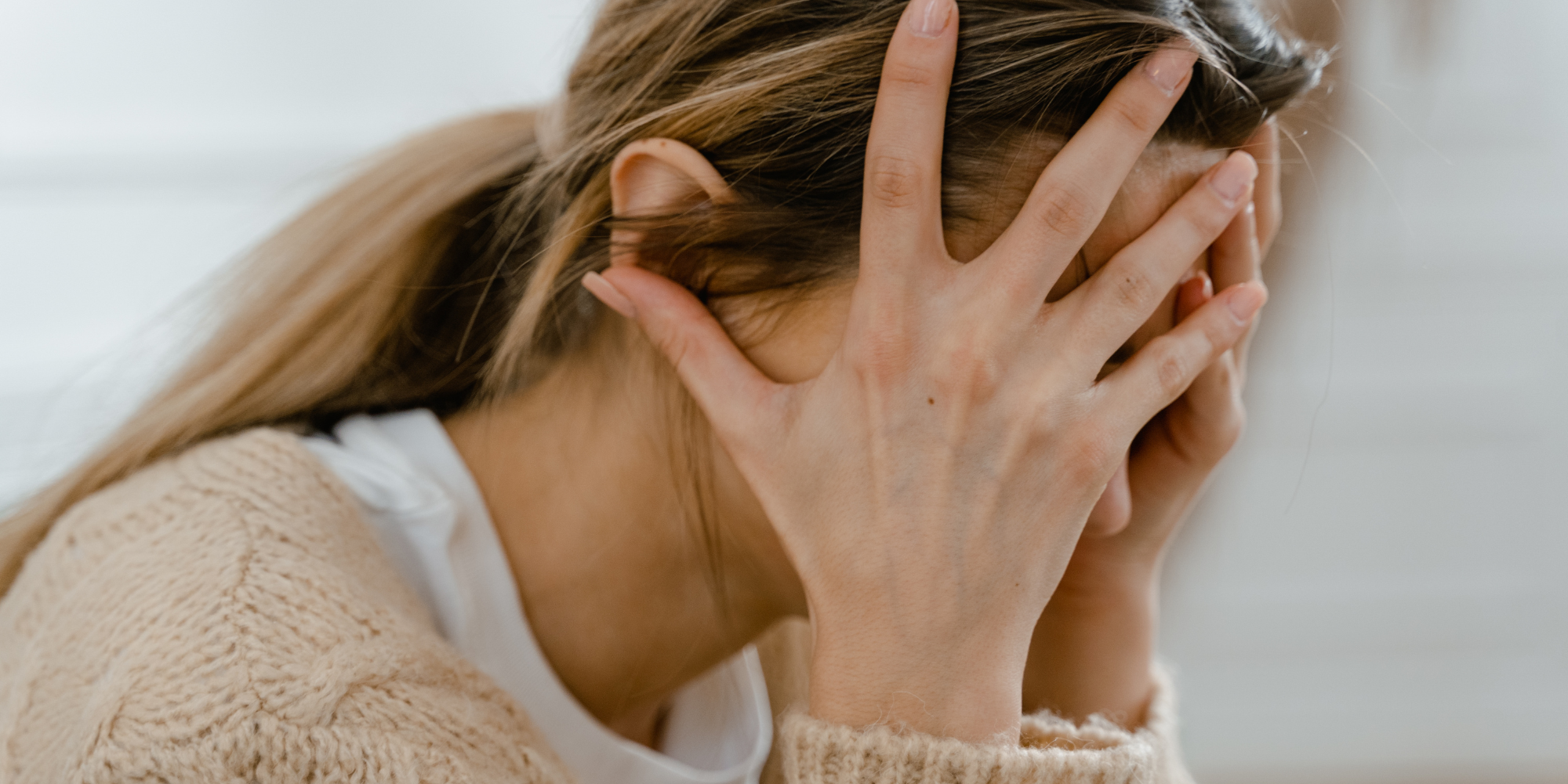Repeated natural disasters, increased pollution, pessimistic forecasts... if you happen to feel worried or even overwhelmed in the face of current news and future environmental challenges to preserve our planet, perhaps you are part of the growing number of people prone to eco-anxiety.
What is eco-anxiety? How does it manifest? What are the solutions to appease it? Let's lift the veil on this phenomenon which, we reassure you right away, is far from being inevitable.
Eco-anxiety: definition

The term “eco-anxiety” comes from the contraction of the terms “ecology” and “anxiety”. To date, there is no precise definition or international consensus around this notion, which is increasingly used in the media to describe a phenomenon which affects more than 50% of French people, and even more so 72% of those aged 18-24. years according to a recent Huffingtonpost survey ("How Eco-Anxiety Affects and Transforms the French" by Sandra Lorenzo).
One of the most comprehensive definitions has been proposed by Australian and New Zealand researchers who define eco-anxiety as the set of anxiety experiences related to environmental crises. These include both anxiety linked to climate change and growing concern about the multiplicity of natural disasters.
In her book Eco-anxiety: living peacefully in a damaged world, Dr Alice Desbiolles describes it as “an anticipatory anxiety” that we can feel in the face of the environmental and social issues that our civilization is now facing. Anger, sadness, fear, it can bring out a multitude of negative emotions, even more strongly in younger generations. For what ?
Simply because their daily life is more modified than that of previous generations, who also see in themselves the next generation whose responsibility it would be to save the planet... Refusing fate, some of them mourn an ideal of life and give up to their childhood dreams to adapt, or even get involved in order to move the lines.
Do you think you are experiencing similar emotions? Here are some signs that can help you identify eco-anxiety.
Recognizing eco-anxiety

It is important to clarify that to date eco-anxiety is not considered a pathology. However, it is a state of mind that can seriously affect daily life. Indeed, this chronic worry creates stress with a direct impact on the body and its rhythms.
However, it is not always easy to recognize the symptoms of eco-anxiety because they are the same as those caused by any other source of stress. Here is what we can say about it: insomnia, eating disorders, stomach aches or even anxiety attacks... These signs can be those of eco-anxiety if they are triggered by concern linked to ecological issues and current environmental issues.
Beyond the physical symptoms, the stress caused by eco-anxiety acts on the metabolism, in particular via the production of so-called stress hormones, such as adrenaline and cortisol. If the action of these substances can be beneficial in the short term to deal with a given situation, in the long term they are harmful and can give rise to pathologies. It is therefore essential to learn to tame this state before it causes too much damage.
Additionally, eco-anxiety can lead those who suffer from it to change their lifestyle. Food, transport, leisure, each decision is now taken with regard to its environmental and societal impact. A responsible approach which only increases the mental load of those affected.
The fact remains that eco-anxiety is not inevitable: there are solutions to calm down and find a little serenity.
How to better cope with eco-anxiety?

We are not born eco-anxious, we become it. It is therefore possible to learn to overcome eco-anxiety to find lightness in everyday life. For this, here are some tips.
The first: do not immerse yourself in hyper guilt or take on more responsibility than is necessary. We cannot solve a problem that is beyond us alone. But everyone can act on their own scale and, in the face of fear, there is nothing like action...
There are many ways to get involved, at your “small” level, through associations for example. Without necessarily becoming an activist, it is also possible to implement new habits within your home. Selective sorting, reasoned consumption, education, every gesture counts and reflects a desire to change things. Choosing to consume committed and responsible brands is another concrete way to support an ecosystem on its way to preserving the environment and life. Be careful not to fall into the trap of greenwashing : favor brands that make awareness and transparency a priority.
Beyond theory, what should we do when emotion is too strong and fear overwhelms us?
Eco-anxiety is always the result of projection. Also, one of the main keys to calming it down is to reconnect with the present moment. By doing this regularly, the mind moves away from sources of worry to focus on what is really happening at the moment. For this purpose, there are many grounding techniques such as mindfulness meditation, breathing , yoga or simple reconnection with nature.
Furthermore, a healthy lifestyle combining a healthy diet, regular physical activity and breaks is necessary to combat the harmful effects of stress on the body. And because it's not always easy, we can occasionally turn to natural solutions to help the body cope. Adaptogenic plants are particularly interesting in that they stimulate our natural resistance to stress. The Days Of Confidence Serenity Complex , enriched with Ashwagandha titled KSM 66®, helps rebalance the nervous system and helps to regain good emotional balance.
Finally, wherever possible, let's strive to cultivate optimism by focusing on solutions rather than problems. Because yes, there are, and more and more. From this perspective, it is better to rigorously select your sources of information and prefer independent media. Social networks offer a lot of engaged and optimistic content that breathes a refreshing and necessary wind of lightness.
To find out more, here are some resources to help you stay informed and learn how to ease your eco-anxiety:
Works
-
Eco-anxiety, living peacefully in a damaged world, Dr Alice Desbiolles
-
Eco-anxiety will not pass through me! Elise Rousseau
-
The emotions of climate change, Dr Céline Massini and Professor Antoine Pelissolo
-
A little survival guide for eco-anxious people, Charline Schmerber
-
An art of living and loving in times of disaster, Jean-Yves Leloup
-
Hervée: the ecological trigger, Maud Zilnyk
Podcasts
Social networks
Reference
-
How Eco-Anxiety Affects and Transforms the French" - Sandra Lorenzo - Huffingtonpost
-
Eco-anxiety: Analysis of a Contemporary Angst - Jean Jaurès Foundation
Some describe eco-anxiety as the evil of the century. While we cannot deny the harmful effect of chronic stress that it causes in those who suffer from it, it is clear that it is also the engine of positive change. Once tamed, it brings together and encourages the movement of an entire generation eager to change things. And, don't forget, human beings have shown on numerous occasions their ability to adapt and reinvent themselves to continue to inhabit this world. Perhaps we can therefore believe that the best is yet to come, it costs nothing to try.















